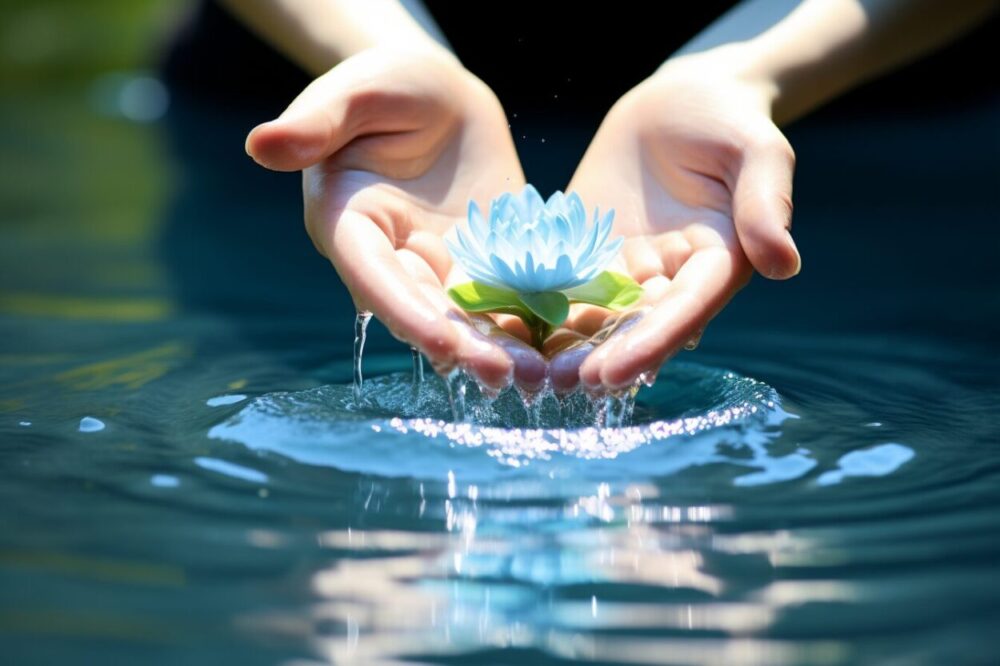Rain Symbolism and Meaning Across Cultures
Rain is a natural phenomenon that has been a source of inspiration for artists, writers, and thinkers throughout history. The rain symbolism and meaning have been explored in various cultures and traditions. Rain is often associated with life, growth, and renewal, but it can also represent sadness, loss, and despair. In this article, we will delve into the rich symbolism of rain and its significance in art, literature, and cultures around the world.
- 1. Renewal and Rebirth in Nature
- 2. Life and Growth
- 3. Cleansing and Purity
- 4. Sadness and Despair
- 5. Change and Transformation
- 6. Isolation and Loneliness
- 7. Divine Blessings
- 8. Sign of Fertility
- 9. Mystery and Intrigue
- 10. Loss and Mourning
- 11. Hope and Optimism
- Rain Symbolism in Literature
- Rain Symbolism in Film
- Conclusion
- Related Posts
1. Renewal and Rebirth in Nature

In agricultural societies, rain was especially important for survival. Farmers relied on rain to water their crops and provide the nutrients they needed to grow. During times of drought, life becomes so much harder, as crops would fail and food would become scarce. However, when rain finally came, it could bring new life and vitality to the land. This is why rain was often seen as a symbol of hope and renewal in these societies.
The same imagery has been deeply ingrained in our collective unconscious, and we have grown to associate rain with a sense of “renewal”. For example, in Hinduism, rain is associated with the god Indra, who is believed to bring life-giving rain to the earth. Similarly, in ancient Greek mythology, rain was seen as a gift from Zeus, the god of the sky and thunder. These beliefs reflect the idea that rain is a powerful force that can bring new life and growth to the world.
Read More: Symbols of Rebirth Throughout History
2. Life and Growth

Rain is often associated with growth because it provides the necessary water for plants to thrive. Without rain, plants would not be able to grow and produce food. This is why rain is often seen as a symbol of renewal and rejuvenation. In many cultures, rain is seen as a blessing from the gods, as it brings life to the earth and allows crops to grow. In literature, rain is often used as a metaphor for growth and change, as characters undergo personal transformations during rainy periods.
Scientifically speaking, rain is essential for the growth of plants because it provides them with water and nutrients. When rain falls, it carries minerals and other nutrients from the soil into the roots of plants. This allows the plants to grow and produce food through photosynthesis. Without rain, plants would not be able to absorb these nutrients and would eventually die.
Read More: 23 Symbols of Growth and Progress Around The World
3. Cleansing and Purity
From a scientific perspective, rain can also be seen as a cleansing and purifying force.
When rain falls, it brings with it a variety of substances from the atmosphere, such as dust and pollutants. As the rainwater falls to the ground, it picks up additional impurities from the surface it touches, such as dirt and debris.
However, as the rainwater flows over surfaces and through the ground, it undergoes a natural filtration process that removes many of these impurities.
This process results in cleaner, purer water that can be used for drinking and other purposes. This natural filtration process is one reason why rain is often viewed as a symbol of purity and cleansing.
Read More: Symbols of Innocence and Purity You Should Know
Another aspect of rain that contributes to its association with cleansing and purity is its ability to bring new life to the earth. After a period of drought or dryness, rain can bring new growth and vitality to plants and other living things. This is a metaphorical way of “washing away the old and brings in the new”.

4. Sadness and Despair

Rain has long been associated with sadness and despair in literature and art. The image of rain falling from the sky is often compared to tears falling from the eyes of a person who is crying. This comparison creates a powerful emotional connection between the rain and human emotions. The sound of raindrops hitting the ground can also be seen as a melancholic sound, adding to the sense of sadness that rain can bring.
In fact, there is scientific evidence to support the idea that rain can affect our mood. Studies have shown that rainy weather can lead to feelings of sadness, fatigue, and even depression. This is thought to be due to a decrease in the amount of sunlight we receive on rainy days, which can disrupt our circadian rhythms and lead to a decrease in the production of serotonin, a neurotransmitter that regulates mood.
5. Change and Transformation

Rain symbolizes change and transformation due to its ability to bring about a significant shift in the environment. Rain is often associated with the end of a dry spell and the beginning of a new season. This change can be seen as a metaphor for personal growth and transformation. Just as rain brings new life to the earth, it can also bring new opportunities and experiences to people.
Scientifically, rain is formed through a process of evaporation, condensation, and precipitation, which takes time and involves a transformation of water from one state to another. This process can be seen as a symbol of personal transformation and growth as well.
Read More: Phoenix Symbolism Across Cultures
6. Isolation and Loneliness
Rain has long been associated with feelings of isolation and loneliness because it often forces us to stay inside. This can lead to a sense of separation from the outside world and from others.
Another way rain symbolizes isolation and loneliness is through its ability to create a sense of distance between people. When it is raining, we are often separated from others by umbrellas, raincoats, and other protective gear. This physical distance can contribute to a sense of emotional distance as well, as we may feel cut off from others during these times.

For example, in the film ‘Blade Runner’, it never stops raining. This perpetual rain creates a dark, dystopian atmosphere that sets the tone for the film. It helps establish the gloomy, gritty, and futuristic world that the characters inhabit, contributing to the overall sense of a world in decay. It also leverages really well the rain symbolism of darkness, isolation, and the struggle between humans and technology. Rain here reflects the emotional states of the characters and their experiences within the complex and morally ambiguous world of the film.
7. Divine Blessings

Rain has been considered a symbol of divine blessings in many cultures, especially in agricultural societies where rain is essential for crops to grow. In ancient times, people believed that rain was a gift from the gods, and that it was a sign of their favor. This belief is still prevalent in many cultures today.
Examples of rain as a symbol of divine blessings can be found in many religions. For instance, in the Bible, rain is often associated with God’s blessings. In the book of Deuteronomy, it says, ‘If you obey the Lord your God, the sky will be clear and the rain will fall on your land.’ In the Quran, rain is also seen as a sign of God’s mercy and blessings. In the poem ‘The Waste Land’ by T.S. Eliot, rain is used as a symbol of spiritual renewal and rebirth. In the painting ‘The Creation of Adam’ by Michelangelo, rain is used to symbolize the life-giving power of God.
8. Sign of Fertility

There is also scientific evidence to support the idea that rain symbolizes fertility. Rainwater contains essential nutrients such as nitrogen, which are necessary for plant growth. When rain falls on the ground, it helps to replenish the soil with these nutrients, which in turn helps plants to grow and thrive. In areas where rainfall is scarce, such as deserts, life is nowhere near as vibrant as in a rainforest.
9. Mystery and Intrigue
Rain can also be used to symbolize the unknown or the hidden. In many cultures, rain is associated with the divine or supernatural, and its unpredictability can make it seem like a mysterious force beyond human understanding.
In some Native American cultures, for example, rain is seen as a gift from the gods, and its arrival is often accompanied by rituals and ceremonies. In art, rain can be used to create a sense of mystery and intrigue by obscuring or distorting the subject of a painting or photograph.
10. Loss and Mourning

The association between rain and loss/mourning may also be influenced by cultural beliefs and practices. In many cultures, rain is seen as a cleansing or purifying force, washing away impurities and bringing new growth. This can be interpreted as a metaphor for the process of grieving, where the tears shed during mourning are seen as a way of purging oneself of pain and sorrow.
Read More: 30 Symbols of Death and Their Meaning
11. Hope and Optimism

Interestingly, sometimes rain is also associated with positive meanings, including hope and optimism. After the rain comes the sun is a popular saying that emphasizes this idea.
Even during difficult times, there is always a chance for things to improve. In the context of rain symbolism, this phrase can be interpreted as a reminder that rain, which is often associated with negative emotions such as sadness and despair, is not permanent. Just as rain eventually fades away, so too will difficult times. This can be a comforting thought for those who are struggling, as it offers the hope that things will get better.
Rain Symbolism in Literature

One of the most famous literary works that use rain symbolism is Ernest Hemingway’s ‘A Farewell to Arms‘. In this novel, rain is used as a symbol of death and loss. The main character, Frederic Henry, experiences a great deal of rain throughout the book, particularly during moments of tragedy and heartbreak. The rain here symbolizes the harsh realities of war and the fragility of human life.
Another notable work that uses rain symbolism is William Shakespeare’s ‘Macbeth’. In the play, rain is used to symbolize the washing away of guilt and sin. After Macbeth murders King Duncan, he becomes consumed with guilt and begins to see imaginary blood on his hands. Lady Macbeth tells him to ‘wash’ his hands, and the sound of rain is heard in the background. This rain symbolizes the cleansing of Macbeth’s guilt and the attempt to rid himself of his sins.
Finally, F. Scott Fitzgerald’s ‘The Great Gatsby’ uses rain symbolism to convey a sense of unease and foreboding. Throughout the novel, rain is used to foreshadow tragic events and to create a sense of tension and uncertainty. For example, when Gatsby and Daisy are reunited, it begins to rain heavily, signaling that their reunion may not be as happy as they had hoped.
Rain Symbolism in Film
Rain plays an important role in The Shawshank Redemption as a symbol of hope and rebirth. When Andy Dufresne first arrives at Shawshank, he is greeted by a torrential downpour, which symbolizes the beginning of his journey towards redemption. The rain also represents the cleansing of his past and the start of a new life. Similarly, when Andy escapes from Shawshank, he emerges into a rainstorm, which symbolizes his rebirth into a new life of freedom and hope.

In addition to symbolizing hope and rebirth, rain in the Shawshank Redemption also represents the power of nature and the unpredictability of life. It reminds us that life is full of unexpected twists and turns, and that even in the darkest of times, there is always the possibility of renewal and growth.
Conclusion
In summary, rain symbolism encompasses renewal, cleansing, and the cyclical nature of life. It mirrors human emotions and experiences, reminding us of the beauty in growth and adversity. Whether as a catalyst for change or a symbol of introspection, rain’s diverse meanings inspire contemplation and creativity. As we journey through life’s storms, rain symbolism teaches us to find wisdom in challenges and embrace the clarity they ultimately bring.







